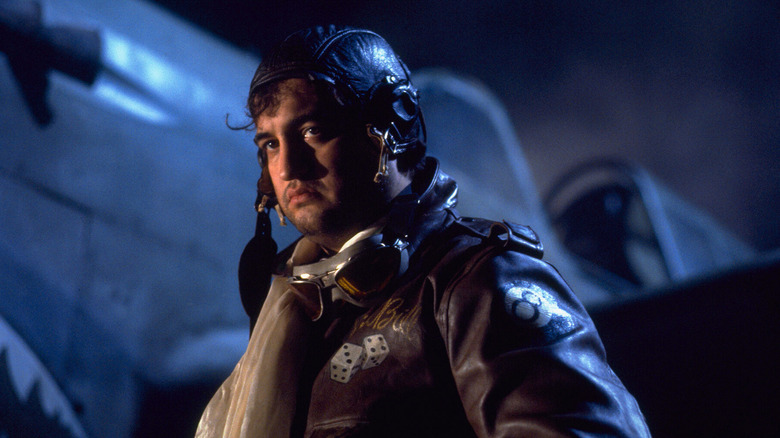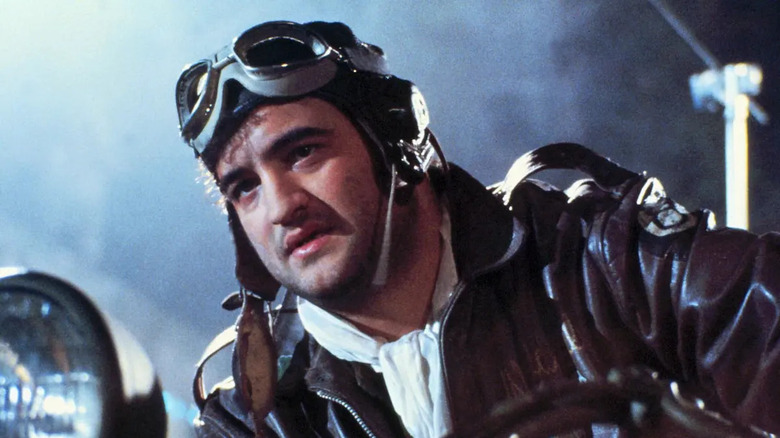Director Steven Spielberg Recalled John Belushi's 'Manic' Behavior On 1941
When Steven Spielberg set out to helm "1941" (a film John Wayne tried to stop him from making), he was seemingly unbeatable. Here was the man who invented the summer blockbuster with "Jaws," then followed it up with the big hit "Close Encounters of the Third Kind." He was on top of the world, and it felt like anything he put his name on was going to be a success. Then "1941" crashed and burned.
Sort of.
Here's the thing: in the grand scheme of things, "1941" was not relly a flop. However, because critics were mixed on the flick and it wasn't as big of a hit as Spielberg's previous two movies, it was seen as a failure. Spielberg the wunderkind was showing signs of fatigue. And to be fair, "1941" is definitely one of Spielberg's weaker efforts. Based very loosely on true events, the film follows several characters in a California community on red alert in the days following Pearl Harbor. Despite some fine cinematic moments here and there, it's a rather shrill movie, where everyone is dialed up to 11 (and in some cases, beyond). Still, the film boasts an incredible cast, including Dan Aykroyd, Ned Beatty, John Candy, Christopher Lee, Tim Matheson, Toshiro Mifune, Robert Stack, Nancy Allen, and of course, the late, great John Belushi.
John Belushi did not seem self-destructive to Steven Spielberg
"Saturday Night Live" and the movie "Animal House" helped turn John Belushi into a mega-star. Unfortunately, Belushi lived fast, relying heavily on drugs and other substances. This behavior ultimately cost him his life: he died in 1982 at the much-too-young age of 33 from combined drug intoxication involving cocaine and heroin. Belushi's addictions would become legendary, but according to Spielberg, the actor never seemed "self-destructive" on the set of "1941." However, the filmmaker did recall Belushi's unpredictable energy. In an interview with EW, Spielberg called Belushi "a very sweet guy," and added: "He had manic energy, he was very rambunctious, and I did not feel he was self-destructive." However, Spielberg did state that he felt Belushi was "burning the candle at four ends, if that's even possible."
Spielberg also recalled odd behavior from the actor. For instance: one time, Belushi let himself into Spielberg's house at 2 A.M. and shook him awake. "I'd look up, and there's John," Spielberg said. "He'd say, 'Hi, Steve,' and I'd say, 'Hi, John.' He says, 'I'm going to crash here, okay?'" According to Spielberg, he woke up the next morning and found Belushi asleep on the floor under the TV set. "Fully clothed and sound asleep," as Spielberg put it, continuing: "John crashed at the house several times. Dan Aykroyd was his minder. Dan was his best friend, and he gave me the handbook on how to handle John. Probably Dan's responsible for keeping John alive as long as he did."
Belushi is definitely a highlight of the uneven "1941," and it's a shame he and Spielberg never got the chance to make another movie together.

